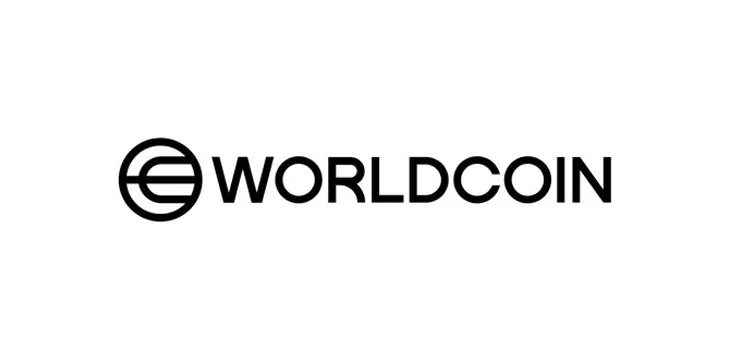|
Getting your Trinity Audio player ready...
|
Worldcoin has finally launched its token, although questions remain over the controversial eyeball-scanning project’s motivations and commitment to transparency.
On Monday, the Worldcoin Foundation announced that the Worldcoin project “is now live and in a production-grade state.” Co-founded by OpenAI founder Sam Altman, Worldcoin is an attempt to introduce online biometric identity verification via scanning the irises of, well, everyone on the planet, although progress on that front has been slow.
However, plans are afoot to expand the distribution of the ‘Orb’—the globe-shaped object into which one stares deeply to have one’s irises added to the ‘World ID’ database—to “35+ cities across 20+ countries around the world.” The plan is to have 1,500 Orbs circulating in these cities/countries by the fall.
To date, some two million individuals have signed up for World ID at a rate of 40,000 per week. The new Orbs—which will be available in select cities in Asia, Africa, the Americas, Europe, and the Middle East—are expected to boost weekly sign-ups by a factor of five.
Worldcoin was intended as “an identity & financial network,” so Monday’s news included the release of World App, a World ID-based payment wallet that uses “digital assets and fiat-backed stablecoins.” It’s unclear what stablecoins might be onboarded, but Worldcoin previously paid its Orb operators’ commissions in Tether (USDT).
Simultaneously, the project announced that its subsidiary World Assets Ltd had “minted and released” the project’s WLD token on the Ethereum blockchain, although users will receive their token ‘grants’ on OP Mainnet aka Ethereum’s ‘Optimism’ Layer 2 scaling ‘solution.’
Already, exchanges such as Binance, Huobi, Bybit, OKX, and Gate have listed WLD. As the ‘crypto casino’ sector’s biggest gambling venues, the fact that Binance and Huobi were first in line should surprise no one. Predictably, the token’s value shot up by nearly one-half in just a few hours before just as rapidly shedding much of those gains. As of late Monday, WLD was sitting around US$2.20.
WorldCoin’s announcement was loaded with cover-your-butt caveats regarding WorldCoin’s utter disinterest in people buying their tokens, along with the very distinct possibility that the token’s fiat value could crater faster than venture capital group Andreessen Horowitz (a16z)—which has led or participated in all of Worldcoin’s funding rounds—can dump tokens on retail customers.
While Orbs will be scanning irises in Los Angeles, Miami, and New York, the WLD token isn’t being made available to U.S. residents, at least not initially. In most markets outside the U.S., individuals who submit their irises receive compensation in WLD, but the token’s distinct resemblance to an unregistered security makes such centralized marketing a distinct non-starter under the watch of Securities and Exchange Commission (SEC) Chairman Gary Gensler.
Tokenumbics
Don’t be surprised if you can’t read the Worldcoin white paper, as haphazard geofencing requires some extensive VPN experimentation to gain access. But the document states that the initial distribution of WLD is 143 million, of which 43 million has already been allocated to ‘beta’ users who gazed into an Orb during the pre-launch period in May 2021. The other 100 million tokens have been ‘loaned’ to select market-makers for a three-month period.
There will be a maximum of 10 billion WLD during the first 15 years of its existence, with a possible 1.5% annual ‘inflation’ rate following that period. Worldcoin makes the not-at-all-grandiose claim that “the majority of humans who are alive today will receive WLD tokens,” while those poor sods who have yet to be born can pound sand, apparently.
However, one-quarter of all WLD will be reserved for insiders—up from the one-fifth cited in a 2021 blog post—with the increased allocation blamed on the costs of launching the network. The insiders will reportedly face one-year lock-ups, although, since the insider allocation can change due to unspecified circumstances, we’re sure accommodations can be made in other areas.
While Worldcoin makes liberal use of the ‘banking the unbanked’ cliché, the company’s head of product, Tiago Sada, makes no secret of the fact that “all our products are for-profit. There will eventually be a bunch of different wallets and experiences which will make money.”
Indeed, the Orb distribution system has been unflatteringly compared with multi-level-marketing schemes in that Orb operators are paid on a per-scan basis. There are also concerns that those two million irises scanned to date have largely been drawn from impoverished countries in the global south and that company “used deceptive marketing practices, collected more personal data than it acknowledged, and failed to obtain meaningful informed consent.”
The eyes have it
Since Worldcoin’s inception, concerns have been voiced regarding its ability to protect the incredibly personal data it collects from its ‘customers.’ While Worldcoin insists that it deletes the eyeball scans, keeping only hashes of the scans, critics, including Edward Snowden, have pointed out that this doesn’t prevent sensitive data from being compromised.
The historical record of ‘crypto’ firms protecting their customers’ privacy isn’t stellar. Earlier this year, TechCrunch reported that multiple Orb operators’ login credentials were being sold on the dark web, apparently due to these operators’ shoddy security habits. Worldcoin responded by belatedly imposing two-factor authorization for its operator app and resetting all logins out of an “abundance of caution.”
This doesn’t inspire an abundance of confidence, particularly when customers are being asked to submit their biometric data, an element of their personal identity that can’t be reset like a random alpha-numeric password.
Related concerns were voiced Monday in a blog post by Ethereum founder Vitalik Buterin, who listed the many potential pitfalls of any system based on biometric ‘proof of personhood.’
Among the concerns specific to Worldcoin is the fact that “the Orb is a hardware device, and we have no way to verify that it was constructed correctly and does not have backdoors. Hence, even if the software layer is perfect and fully decentralized, the Worldcoin Foundation still has the ability to insert a backdoor into the system, letting it create arbitrarily many fake human identities.”
Also, should users’ phones be hacked, “users could be coerced into scanning their irises while showing a public key that belongs to someone else, and there is the possibility of 3D-printing ‘fake people’ that can pass the iris scan and get World IDs.” All these potential extra identities could be used to take a particular side during governance decisions.
Buterin also finds fault with Worldcoin’s plans to eventually widen responsibility for making Orb devices to other manufacturers. Buterin suggests there’s no way to prevent manufacturers from making either malicious or faulty Orbs. Even plans for regular audits of Orbs would only be capable of catching malicious activity after the fact.
Birds (vultures, mostly) of a feather
Only time will tell whether Worldcoin’s intentions are honorable when it comes to safeguarding the biometric data of “the majority of humans.” But looking at some of the entities with which Worldcoin has chosen to align itself doesn’t paint the most flattering picture.
Worldcoin is a member of the Crypto Open Patent Alliance (COPA), a fellowship that includes veritable entities currently being or having recently been targeted by one or more U.S. government agencies for flouting various rules and regulations. These include exchanges Coinbase (NASDAQ: COIN), Kraken, and OKCoin, not to mention Microstrategy’s (NASDAQ: MSTR) Michael Saylor, who is currently being sued for tax fraud.
COPA was formed with the lofty ambition of encouraging “the adoption and advancement of cryptocurrency technologies and to remove patents as a barrier to growth and innovation.”
But in its two-plus years of existence, its only concrete action has been to sue nChain’s U.K. based chief scientist Dr. Craig Wright. COPA seeks to discourage public acceptance of Wright as the real-world individual behind the Satoshi Nakamoto pseudonym credited with authoring the 2008 Bitcoin white paper.
Wright was recently the subject of a lengthy Forbes article that detailed his extensive patent portfolio, including 800 granted patents and 3,000 others awaiting approval in 46 different jurisdictions. Having built their empires on others’ innovations, COPA members now seek to deny Wright the rightful fruit of his intellectual labors.
We don’t know if Worldcoin’s Orb hardware utilizes any of Wright’s patents, but their WLD token undoubtedly transacts in a fashion that Wright would recognize. Best dump ‘em quick, fellas, before the eyes of intellectual property law look deep into your own.
Follow CoinGeek’s Crypto Crime Cartel series, which delves into the stream of groups from BitMEX to Binance, Bitcoin.com, Blockstream, ShapeShift, Coinbase, Ripple,
Ethereum, FTX and Tether—who have co-opted the digital asset revolution and turned the industry into a minefield for naïve (and even experienced) players in the market.

 03-05-2026
03-05-2026 




